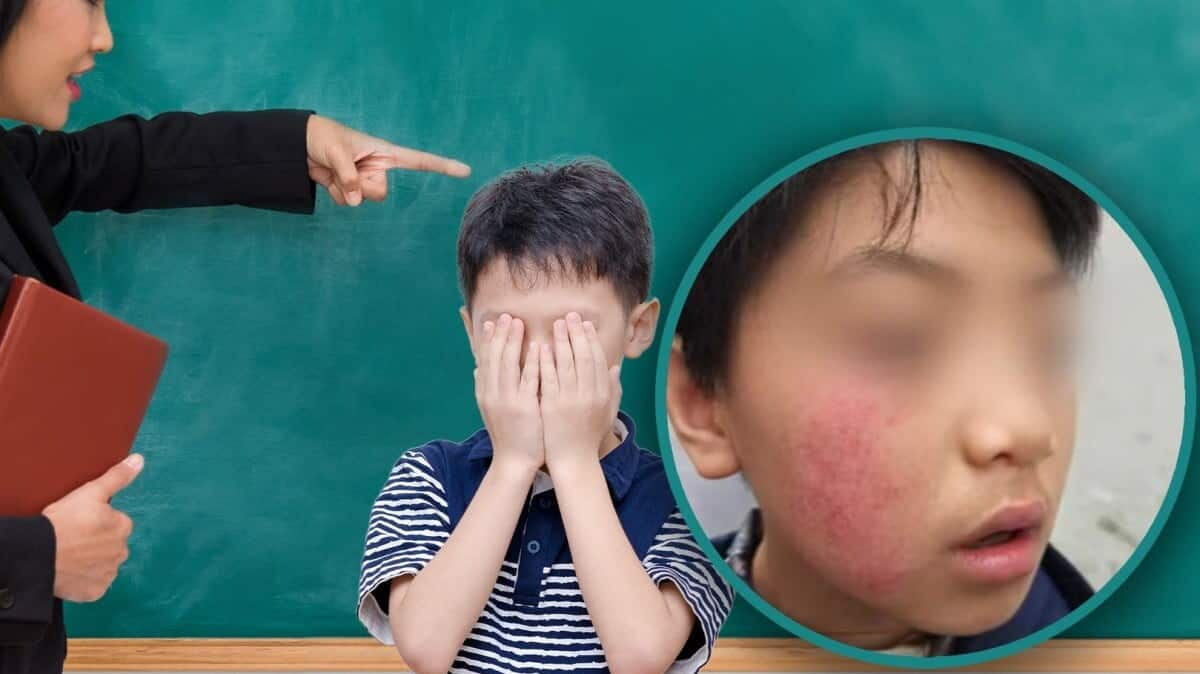
Chinese boy loses skin pigmentation after being slapped by teacher
What's the story
A mother in China, identified by her surname Huang, has alleged that her 11-year-old son developed vitiligo—a chronic autoimmune condition causing skin pigmentation loss—after being slapped by his teacher. The mother stated that she rushed her son Liu to the hospital after seeing his face was swelling. Liu, a student at Yifu Primary School in southwest China's Yunnan province, informed his mother that a teacher had slapped him in front of the class for not doing homework.
Punishment details
Teacher's punishment leads to health scare
According to Liu, the teacher slapped him three times on the right side of his face and once on the left, causing it to turn bright red. He began to experience a loss of pigmentation on certain areas of his epidermis three months following the incident. Although the precise causes of vitiligo are still unknown, researchers have hypothesized that environmental stressors may contribute to the condition's onset.
Official responses
School and hospital respond to incident
A staff member told Chinese media site Benliu News that the boy has been diagnosed with vitiligo. The school is currently awaiting the results of a police investigation and a forensic injury evaluation before taking necessary action against the teacher involved. The mother stated that she was unable to contact the teacher after the hospital had received the bill for the therapy. She stated that she is still waiting for the teacher or school to reimburse her.
Medical perspective
Vitiligo: A complex condition with multiple triggers
Vitiligo is a chronic autoimmune disease that results in the loss of skin pigment, leading to white patches on various parts of the body. According to the National Institutes of Health, people with vitiligo have higher rates of anxiety and depression than the general population. This higher risk may result from difficulties in social situations, making it harder for individuals to feel accepted and blend in with others.